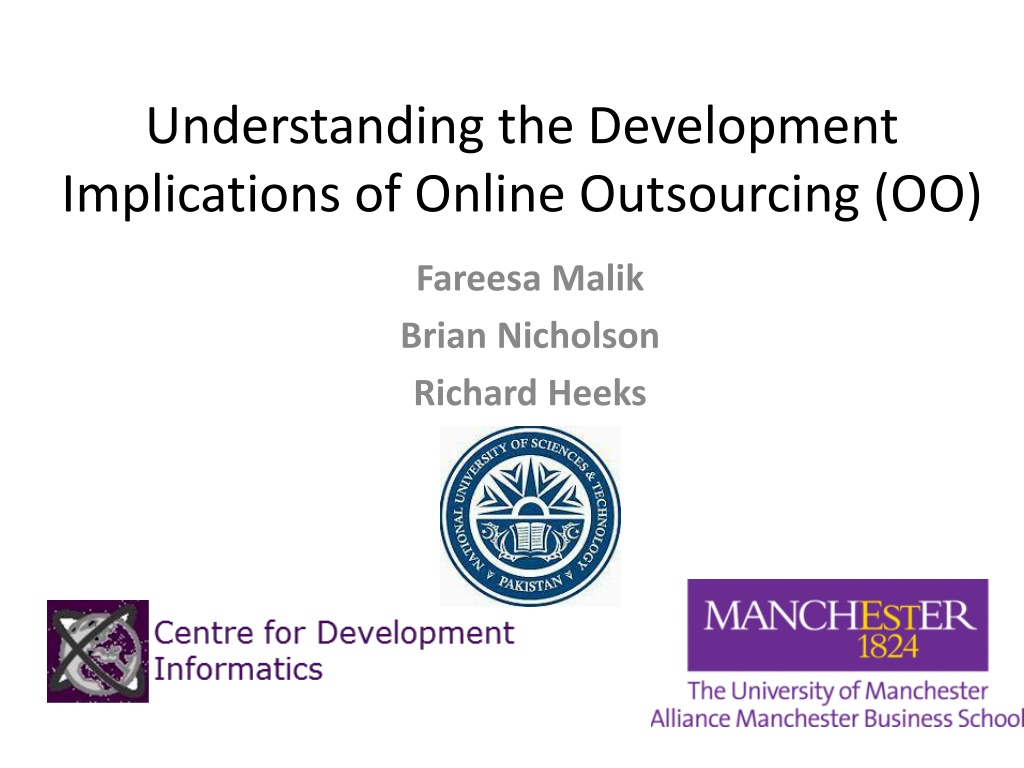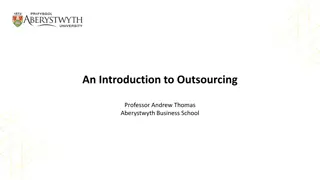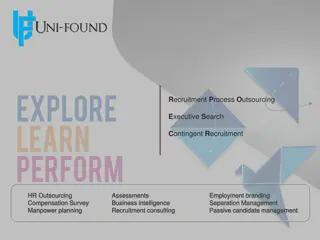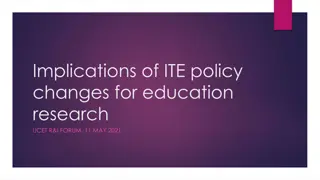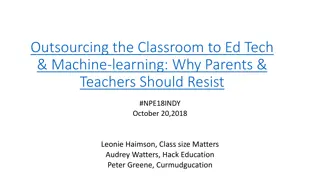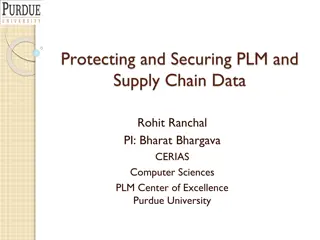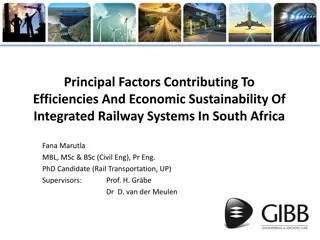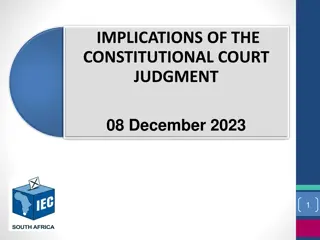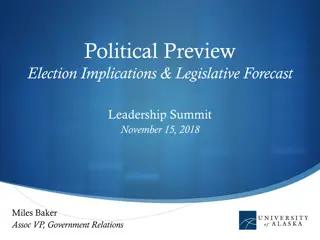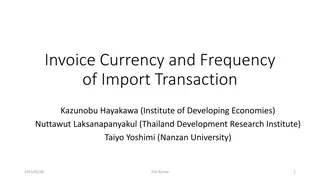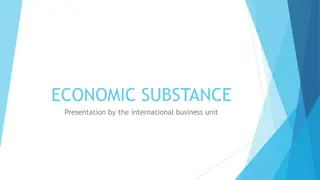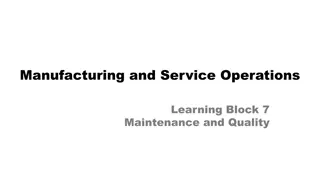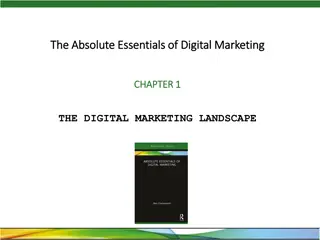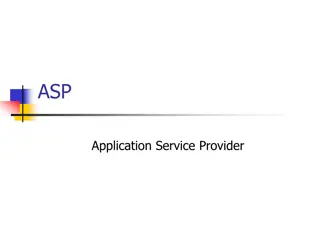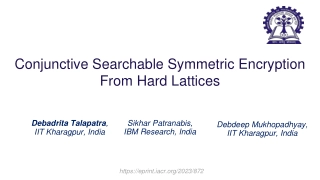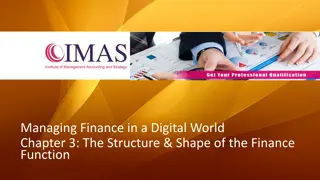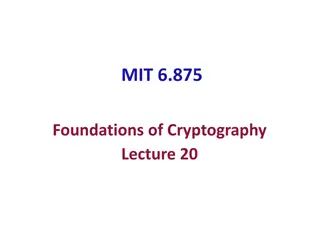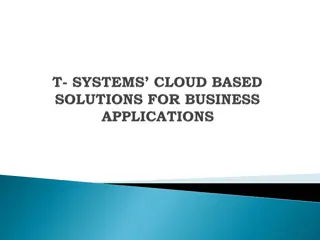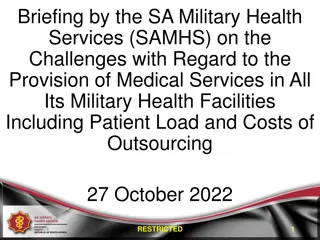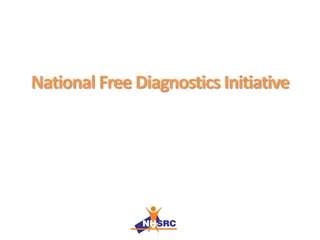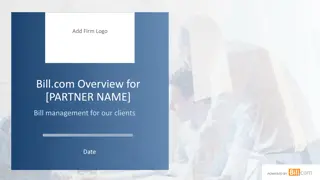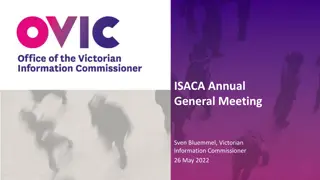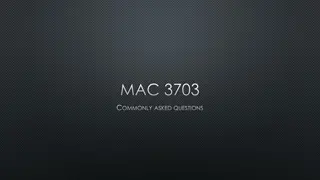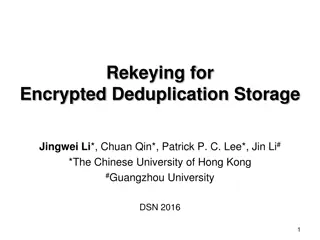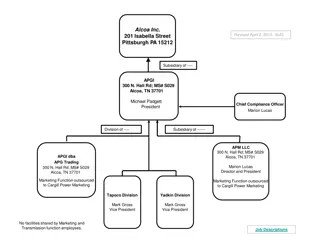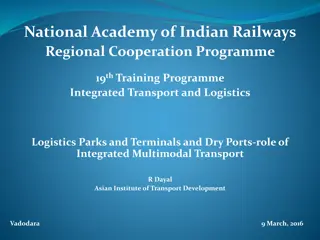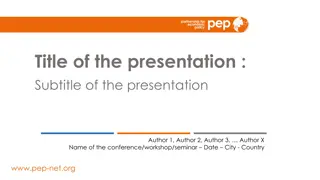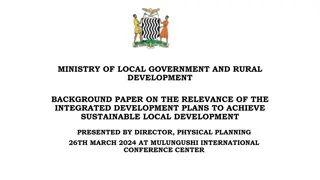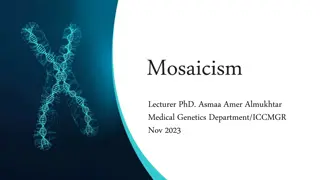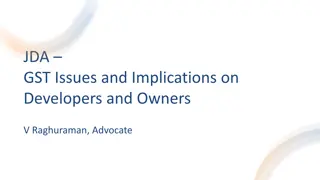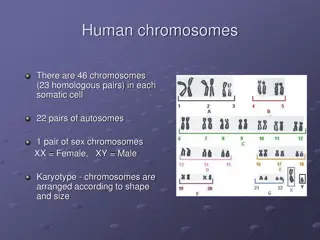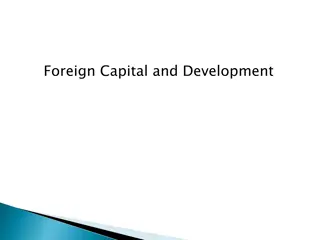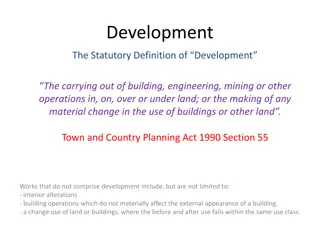Understanding the Development Implications of Online Outsourcing
This study delves into the development implications of Online Outsourcing (OO) with a focus on marginalized groups, exploring research questions on drivers, required infrastructures, and impacts. It examines DFID's Sustainable Livelihoods Framework, policy interventions in various countries, and initiatives like NaijaCloud in Nigeria and eRezeki in Malaysia. The study also looks at the Human Cloud Management literature and the critical views on OO as a digital sweatshop.
- Online Outsourcing
- Development Implications
- Marginalized Groups
- Sustainable Livelihoods
- Policy Interventions
Uploaded on Sep 26, 2024 | 0 Views
Download Presentation

Please find below an Image/Link to download the presentation.
The content on the website is provided AS IS for your information and personal use only. It may not be sold, licensed, or shared on other websites without obtaining consent from the author. Download presentation by click this link. If you encounter any issues during the download, it is possible that the publisher has removed the file from their server.
E N D
Presentation Transcript
Understanding the Development Implications of Online Outsourcing (OO) Fareesa Malik Brian Nicholson Richard Heeks
Agenda OO and development Conceptual frame DFID livelihoods Methodology Analysis Conclusion
OO development policy interventions NaijaCloud initiative in Nigeria Malaysia: eRezeki Started in 2011 as Microwork for the B40 Free market vs. Walled Gardens Philippines Rural Impact Sourcing initiative
Streams in the OO literature Human cloud management literature Critical research pessimistically views OO as a digital sweatshop Development?
Research questions What drives those in marginalised groups to engage in OO? What are infrastructural and institutional ecosystems required, particularly addressing barriers to OO for marginalised groups? What are the short- and longer-term impacts of OO?
DFID Sustainable Livelihoods Framework H Vulnerability Context N S Policies Institutions Processes Livelihood Strategies Livelihood Outcomes influence P F
Pakistan: KP Youth Employment Program: Khyber Pakhtunkhwa province. Target 40,000 unemployed and under-employed youth with freelancing.
Organisation Respondent Designation Location of Interviewees Interview mode No of Respondents World Bank Project Lead Washington USA Islamabad Pakistan Islamabad Pakistan Lahore Pakistan Skype 1 EP CEO Face-to- face Face-to- face Skype 1 Project Manager Ex-Trainees and Freelancers Project Manager 1 3 KADO Hunza Gilgit Baltistan Pakistan Hunza Gilgit Baltistan Pakistan Gilgit Gilgit Baltistan Pakistan Hunza Gilgit Baltistan Pakistan Karachi Pakistan Face-to- face 1 Trainer and Freelancer Face-to- face 3 Project Coordinator Face-to- face 1 Ex-Trainees Face-to- face 5 Ex-Trainee and Medical Transcribers Trainees and Bloggers Skype 1 Ghizer Gilgit Baltistan Pakistan Gilgit Gilgit Baltistan Pakistan Face-to- face 9 Ex-Trainees and Freelancers Face-to- face 3 Total Number of Respondents 29
Vulnerability context human capital ..the problem here is that our job market is very poor. We do not have industries here (RE Project Coordinator, KADO) The problem is that we live in GB; which is itself a conflicted area. That is why the government is not doing much investment for prosperity here ( EJ-Project Manager KADO) The reason is it s the front line of extremism. The next biggest issue is unemployment. Both of these issues are interrelated because when there is unemployment the chances of frustrated youth to be involved in terrorist activities would be higher. (SK Project Manager, EP)
Vulnerability Context physical capital We don t have high speed Internet and full time electricity in this area. So we don t have basic things for freelancing. (SA Trainer, KADO);
Mediation Effect Social relations My parents are uneducated. So, they won t understand freelancing. They just want that their son to go to the office, use a big car and work on some important government position, and people can praise them how successful is their son. (HU Trainee, KADO)
Mediation Effect Institutions I think the system of Freelancer and Upwork is very tough. ... I cannot work on that level. I made an account on Upwork but we have some difficulties there. We had some problem in creating a profile there. I cannot do work in English correctly. Sometimes, they cancel the jobs. We do not understand what they are talking about. Sometimes, they give us poor rating. That is also a dead block. (WA Trainee, KADO) Upwork has changed its policy of minimum work wage. Previously, they had allowed working for US$1 per hour. Later they fixed it to minimum US$3 per hour. (RE Project Coordinator, KADO) Organisations I completed my first online outsourcing project with the help of one or two of my friends. (MU Trainee, KADO)and I have recently guided my cousin about freelancing. (NU Trainee, KADO)
Capital Assets and Livelihood Outcomes Financial capital Sinking, Struggling, Surviving and Swimming I applied for around three to four hundred jobs, and then I got one job. It is not an easy task. On Upwork, there are millions of freelancers. We have to compete with them. (NU Trainee, KADO)
I am earning twenty five thousand to thirty thousand per month ($250 to $300). When I will become Level 2 seller and would get more orders in freelancing projects. The one which I did in the morning, it was of $30 and I did it in three hours. Now, one of $60 and two of $90 are left to deliver. (MK Trainee, EP)
Capital assets - outcomes Human capital the technical skills for freelancing such as e-marketing, blogging, search engine optimization, graphic and web-designing (EJ Project Manager, KADO) They even teach us how to write cover letters. Also, they taught about proposal writing, means they told us everything about how to deal with the clients. I am getting a new skill, which I have not learnt before. There is growth on personal level as well. I won t be able to talk to you had I not been doing a job. I had very less confident. (MK Trainee, EP) The one-week freelancing training is sufficient for the people in cities who are experts and highly qualified with MCS, MBA, MBBS Degrees. . However here, we have to engage the trainees with us for six months so that they can learn how to communicate with the clients. (EJ Project Manager, KADO)
Conclusions What drives those in marginalised groups to engage in OO? What are infrastructural and institutional ecosystems required, particularly addressing barriers to OO for marginalised groups? What are the short- and longer-term impacts of OO?
Malik F., Nicholson B., Heeks R. (2017) Understanding the Development Implications of Online Outsourcing. In: Choudrie J., Islam M., Wahid F., Bass J., Priyatma J. (eds) Information and Communication Technologies for Development. IFIP Advances in Information and Communication Technology, vol 504. Springer http://www.springer.com/gb/book/9783319591100
